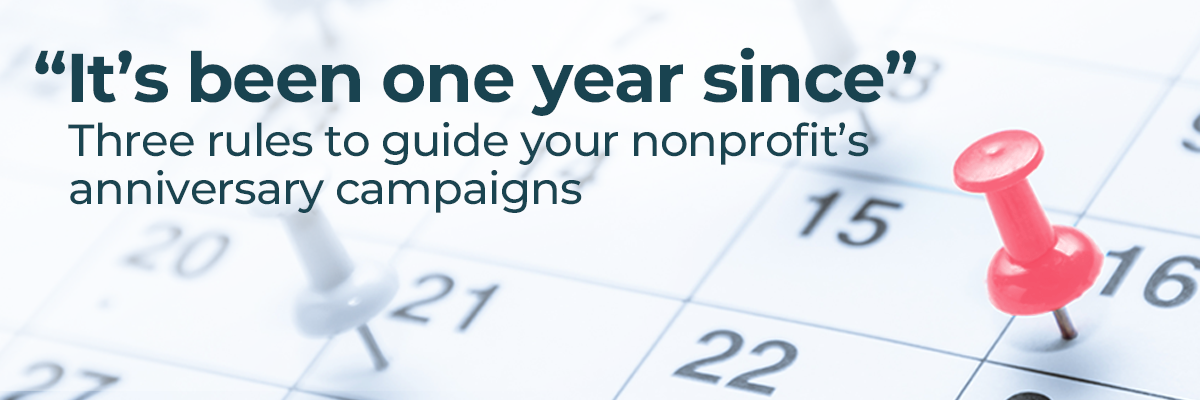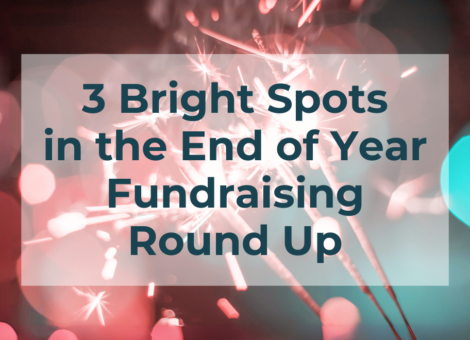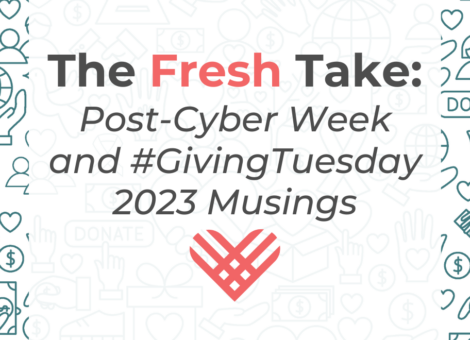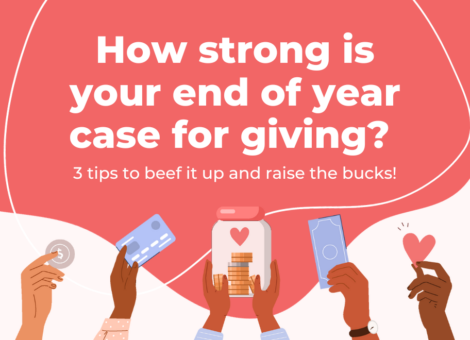No matter the month, the calendar year is full of milestone moments and commemorative memorial dates. Just last month, February 24 marked the first anniversary of Russia’s invasion of Ukraine. In the weeks since then, we’ve passed yet another anniversary as we entered the fourth year of the Covid-19 pandemic. And upcoming on June 24, another one: the one-year mark of the U.S. Supreme Court overturning Roe v. Wade.
For many of our clients and nonprofit organizations, these anniversaries offer an incredible opportunity to engage your supporters, especially if they provide humanitarian or other essential services. But getting the timing right and the approach right can be tricky.
If you’re weighing whether or how to mark an anniversary at your nonprofit, here are three rules to consider.

Let’s start with why you might want to campaign around an anniversary. For some groups, breaking news about an emerging crisis created a big rapid response moment that launched a flurry of messages in response to the news – and resulted in unprecedented amounts of dollars raised.
Rule #1
If your nonprofit’s rapid response to a crisis brought in a massive influx of new supporters, new donors, and new dollars, you should plan to revisit that work at the one-year mark (and honestly, even before that – see rule #3). From a fundraising perspective, it’s simply necessary.
Suppose you didn’t have a big rapid response moment, but your organization works on an issue relevant to the crisis. In that case, there’s still an opportunity to leverage an anniversary to communicate to your audiences and educate them about what your organization is doing to help serve affected communities and help solve or mitigate the crisis.
Rule #2
As you’re mapping out your planned communications about the upcoming anniversary, start earlier than you think. You want to be able to both engage your audiences with the work you’ve accomplished since Day 1 of the crisis (or since your rapid response moment) and take advantage of the news cycle to ensure you’re striking at the right time. And the news cycle may start earlier than you think!

For example, Google Trends data around the first anniversary of the invasion of Ukraine shows that news began to spike on February 15, 2023, and peaked on February 19 – even though Russia’s invasion was on February 24. So if you planned to start your communications the week of the anniversary, you might have missed the opportunity to be top of mind at the right time.
And while it’s impossible to know when an upcoming anniversary will get media attention, it’s a good bet to assume that the drumbeat will start to sound at least two to three weeks before the anniversary date, with it fading fast after the anniversary date has passed.
Rule #3
Avoid navel-gazing – and getting in your own way. We’ve seen organizations approach anniversaries in ways that might not best serve the organization’s goals or best engage its supporters.
As one example, we’ve seen nonprofits making a big splash about an internal anniversary (It’s our 25th year! The start of our new research program! One year since we launched our new website!) with a full-fledged digital campaign. While these internal milestones and anniversaries are important to your organization, they have far less meaning to many of your supporters. They can be a natural moment for you to reach out to major donors or major donor prospects and engage them more deeply. But generally speaking, they’re not a solid general engagement or campaigning moment for the bulk of your audience.
On the flip side, we’ve seen organizations that absolutely should be campaigning during a rapid response moment or on an anniversary of a big national or international crisis. But instead, they decide that their issue doesn’t align with the crisis at hand. They assume they should be silent, but that’s not always the case!
For example, last summer, after the high court struck down Roe, we encouraged one client who works on data privacy issues that the fall of Roe was, in fact, in their lane. That Supreme Court decision sparked a national conversation on data privacy and menstrual tracking apps. On the surface, it seemed like a shift away from their focus on technology, democracy, and justice. Still, it was a timely and relevant moment to engage their audience.
Now, our goal wasn’t to take away attention or dollars from reproductive rights organizations. But it did provide an opportunity to build relevancy among that organization’s audience, connect the dots on how data privacy touches every aspect of our lives, and encourage them to support that organization’s mission. (We’re glad they heard us out on this one!)

In nonprofit digital marketing and fundraising, large-scale anniversaries are a chance to educate your audience on your organization’s response to the crisis. They’re often a great time to outline your organization’s plans to continue the essential work in the long term — and remind your constituents that their ongoing and sustained support is vital for the work ahead.
Jenn Lejano is the principal and co-founder of Fresh Eyes Digital. For nearly 20 years, she’s had the privilege of working with the country’s leading nonprofits to grow their constituencies, develop groundbreaking strategy and campaigns, and raise millions for the causes she cares about. She especially loves building strong digital direct response programs and practices that dramatically improve how nonprofits build loyalty with their constituents.



